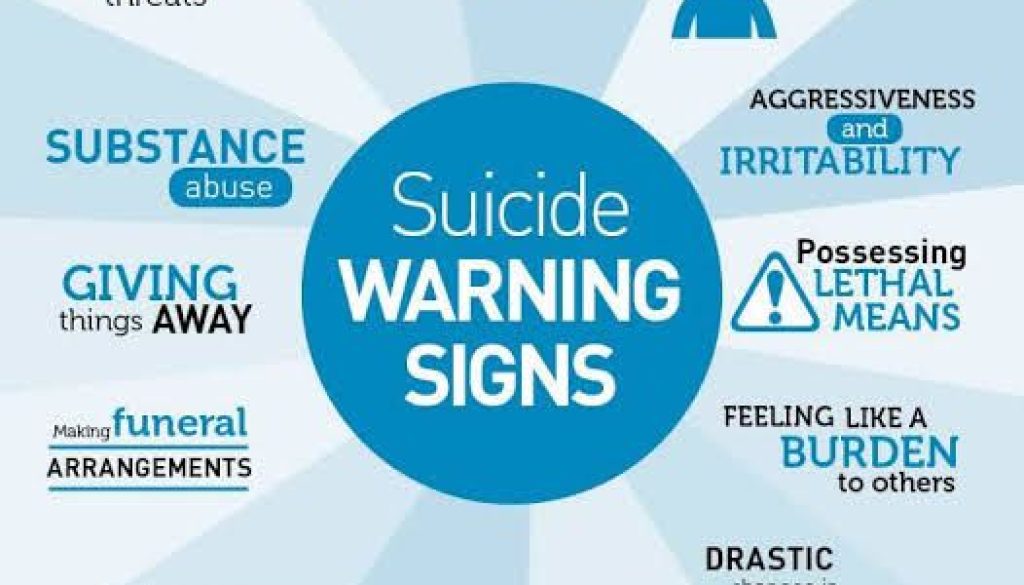The warning signs of suicide
The warning signs of suicide can vary from person to person, but some common signs include:
– Talking about wanting to die or kill oneself
– Talking about feeling hopeless, helpless, or having no reason to live
– Talking about feeling trapped or being in unbearable pain
– Looking for ways to kill oneself, such as searching online or buying a gun
– Talking about great guilt or shame
– Acting anxious or agitated, or behaving recklessly
– Withdrawing from social activities or isolating oneself
– Displaying extreme mood swings, such as going from very sad to very calm or happy
– Giving away prized possessions or making arrangements for someone else to care for dependents
– Saying goodbye to friends or family members as if they won’t be seen again
It’s essential to take these signs seriously and not dismiss them as attention-seeking behavior. If you or someone you know is exhibiting these signs, it’s crucial to seek help immediately.
Some questions to ask someone who may be suicidal include:
– Are you having thoughts of suicide?
– Do you have a plan for how you would end your life?
– Have you taken any steps to prepare for your death, such as giving away possessions or writing a will?
– How can I support you?
If the person is in immediate danger, call emergency services or encourage them to go to the emergency room. If the person is not in immediate danger, encourage them to seek help from a mental health professional or a crisis hotline.
Some resources for people in crisis include:
– National Suicide Prevention Lifeline (1-800-273-TALK (8255) in the US)
– Crisis Text Line (text “HOME” to 741741 in the US)
– Local mental health crisis services or emergency rooms
Remember, it’s always better to err on the side of caution when it comes to suicidal thoughts or behaviors. If you’re unsure about what to do, seek guidance from a mental health professional or a crisis hotline.



